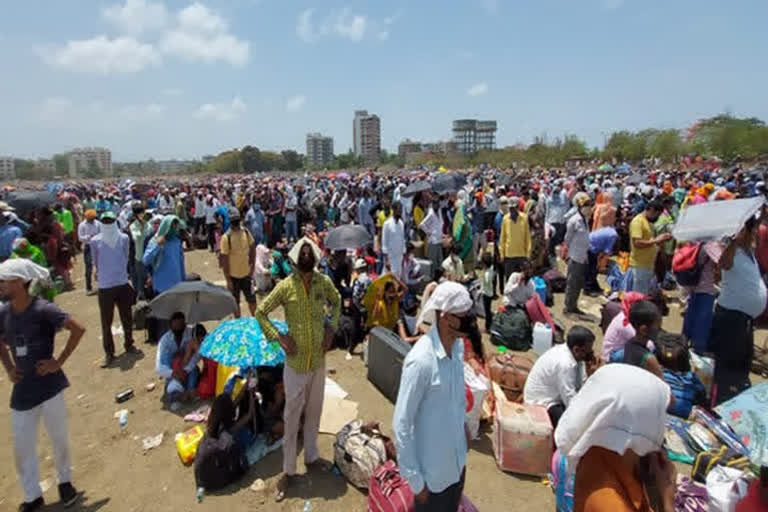Hyderabad: Migrant workers are by far the worst affected group following the outbreak of COVID-19 and the pandemic induced lockdown. Millions of such workers were displaced as they made long treacherous journey back to their home villages from urban islands. They lost their jobs and livelihood. And now they stare at long-term unemployment and poverty.
Meanwhile, other group of migrant workers have found themselves stranded in host countries without access to social protection and little money for food or accommodation.
Even those with jobs in hand are taking reduced wages and living in cramped worksite residences where social distancing norms are impossible, putting them at greater risk of contracting the virus.
“This is a potential crisis within a crisis,” said Manuela Tomei, Director of the ILO’s Conditions of Work and Equality Department.
“We know that many millions of migrant workers, who were under lockdown in their countries of work, have lost their jobs and are now expected to return home to countries that are already grappling with weak economies and rising unemployment. Cooperation and planning are key to avert a worse crisis,” he said.
A United Nations report says that small and medium-sized enterprises -- the engine of the global economy -- are suffering immensely and many may not recover. Those living in developing countries and fragile contexts face the most dramatic risks, in part because they have the least resilience.
Read:H-1B Visa Ban: Impact on Indian Professionals
The approximately two billion people working in the informal economy -- often without rights at work and social protection -- suffered a 60 per cent decline in earnings in the first month of the crisis alone.
According to ILO estimate there are 164 million migrant workers worldwide, nearly half of them women, comprising 4.7 per cent of the global labour force. While not all of these workers will return home – after losing their jobs or for other reasons – informal ILO research in more than 20 countries indicates that many millions are expected to do so.
A package of ILO briefing and policy documents focusing on the effects of the COVID-19 pandemic on workers who are migrants, refugees, or forcibly displaced persons, draws attention to the potentially serious social and economic impact if returns occur over a short period of time and if migrants are not included in social protection measures or given help to reintegrate into national labour markets.
The research also shows how returning migrant workers bring skills and talent that can help their home economies rebuild better after the pandemic. However, the key to unlocking this potential is the establishment of rights-based and orderly return and reintegration systems, access to social protection, and proper skills recognition.
